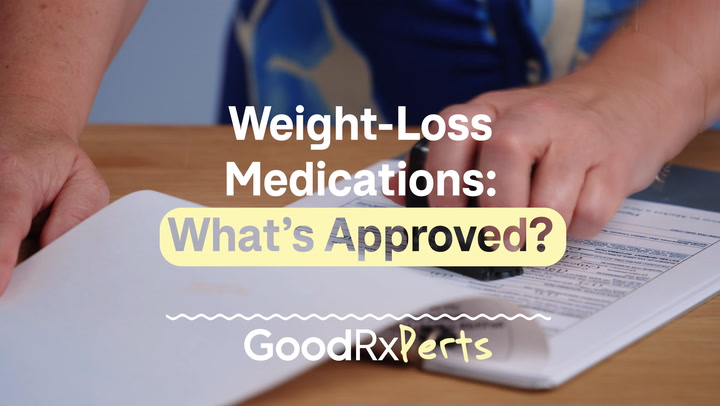
9 Phentermine Side Effects You Should Know About
Key takeaways:
The most common side effects of phentermine (Adipex-P, Lomaira) are dry mouth and trouble sleeping.
Serious side effects, such as heart valve disease and high blood pressure in the lungs (pulmonary hypertension), are extremely rare. They’re also less likely when phentermine is used by itself.
Phentermine is not recommended for people who have heart problems or a history of substance misuse.
Table of contents

It can be challenging to maintain a healthy body weight with lifestyle changes alone. Phentermine (Adipex-P, Lomaira) can be a short-term solution for people who need a little extra help losing weight. It should be used in combination with good nutrition, exercise, and behavioral changes to achieve the best results.
If your healthcare team has recommended phentermine, you may be curious about how you’ll feel while you’re taking it, including what side effects it may cause.
Phentermine side effects at a glance
Some phentermine side effects will go away as your body adjusts to the medication. Others are more serious, so they’re good to be aware of so you know when to seek medical care. Here are some of the common and serious phentermine side effects reported in clinical trials. Keep in mind that everyone responds to medication differently, so you may experience a side effect that isn’t listed here.
Search and compare options
Common side effects:
Dry mouth
Trouble sleeping
Headache
Tremor
Dizziness
Restlessness
Constipation or diarrhea
Increased heart rate
Increased blood pressure
Sexual side effects
Itchy skin or hives
Rare but serious side effects:
Pulmonary hypertension (a rare lung condition)
Damage to the heart valves
Misuse and dependence
Impaired functioning
Let’s take a closer look at nine possible phentermine side effects and what to do if you experience them.
1. Dry mouth
Dry mouth is one of the most common phentermine side effects. That’s because it can decrease saliva production. With less saliva, your mouth can feel drier than normal. Not only is this unpleasant, but chronic dry mouth can also lead to difficulty swallowing and tooth decay.
Make sure to drink plenty of fluids while taking phentermine. Try to avoid foods that are overly sweet or salty — they can worsen this side effect. You can also try an over-the-counter (OTC) dry mouth treatment like gum, mouthwash, or lozenges.
If this side effect worsens or doesn’t get better over time, let your prescriber know. They can help determine if phentermine is the cause and how best to manage it.
2. Insomnia
Trouble sleeping (insomnia) is another common side effect of this medication. Phentermine is considered a stimulant, and it can cause you to feel more alert and energetic. This can make it harder for you to fall and/or stay asleep.
You can help prevent sleep issues by taking phentermine once daily in the morning. Taking it early in the day gives your body more time to process the medication. By the time you’re ready to go to bed, there’s less medication in your system to affect your sleep.
What does it feel like to take phentermine? Three people discuss their experiences taking this weight-loss medication.
How does phentermine work? Learn how effective phentermine is and how it works, and get answers to other frequently asked questions.
Alternative options: If phentermine isn’t the right fit for you, there are other oral and injectable medications for weight loss.
It’s also helpful to practice good sleep hygiene. Avoid alcohol, caffeine, and heavy meals before bed. Create a relaxing environment, and try to go to bed at the same time every night.
Sleep issues may resolve once your body adjusts to phentermine. But if it continues, talk to your prescriber. They may lower your dose or add a different medication to help you sleep.
3. Headache
Some people taking phentermine experience headaches. Phentermine can constrict and relax your blood vessels. This can change the blood flow going to your brain, which can activate pain signals and lead to phentermine headaches.
Keeping yourself hydrated may help. You can also ask your prescriber or pharmacist about OTC treatment options such as acetaminophen (Tylenol) or ibuprofen (Advil, Motrin).
If you notice that your headaches are not going away or becoming more severe, talk to your healthcare team. Persistent headaches could be a sign of a more serious health problem and should not be ignored.
4. Tremor
Since it’s a stimulant, phentermine can sometimes cause tremors, or involuntary shaking. Although this side effect is usually mild and goes away quickly, it could also be a sign that your dose is too high.
Let your prescriber know if you’re experiencing tremors that aren’t improving. They may need to lower your phentermine dose. If you have other symptoms along with a tremor, like fast breathing, confusion, and stomach cramps, seek medical care right away.
5. Behavioral changes
Phentermine releases certain chemicals in the brain that can lead to a euphoric or “high” feeling. Since phentermine can alter your state of mind, you should avoid driving or operating heavy machinery until you know how it will affect you. You should also avoid drinking alcohol if you’re taking phentermine, as it can worsen these effects.
In rare cases, phentermine may cause more severe mood changes, such as feeling overly agitated or seeing things that aren’t there. If you start to experience changes in your mood or behavior while taking phentermine, be sure to let your healthcare team know.
Because of its effects on the brain, phentermine is categorized as a controlled substance. This means it has a potential for misuse and dependence. That being said, it seems that phentermine may actually have a low potential for dependence when used properly for weight loss. Your prescriber will be able to determine whether phentermine is a good choice for you based on your medical history.
6. Constipation or diarrhea
Phentermine may cause constipation. But there have also been reports of diarrhea in some people taking it.
Whether you experience constipation or diarrhea while taking phentermine, hydration is important. Fluids can help keep things moving through your digestive tract if you have constipation. They can also replenish the water lost through diarrhea.
OTC treatment options include docusate sodium (Colace) and polyethylene glycol (Miralax) for constipation and loperamide (Imodium A-D) for diarrhea.
If your stomach issues don't resolve, let your healthcare team know. They may adjust your dose or switch you to a different medication to manage your weight.
7. Sexual side effects
There’s a chance that phentermine may cause sexual side effects. These can include erectile dysfunction or changes to your sex drive.
If these side effects become bothersome, talk to your prescriber. They can rule out other possible causes and help you decide on the best course of action.
8. Increased blood pressure and heart rate
Phentermine may cause high blood pressure and a rapid heart rate. This could be due to its effect on your blood vessels. You may notice your heart beating faster when you first start taking phentermine, but it usually isn’t severe and often goes away over time.
It should be noted that the potential for this side effect isn’t accepted by all researchers. In fact, a recent study suggests the opposite. It found that weight loss aided by phentermine can actually lower blood pressure in people who take it.
High blood pressure is generally symptomless, so it’s hard to gauge the severity without actually taking your blood pressure. If this is a concern for you, it’s a good idea to keep an eye on it using an at-home blood pressure monitor. Symptoms of a fast heart rate are easier to recognize and include dizziness, nausea, and feeling out of breath.
Let your healthcare team know if you have a history of heart problems. They’ll help decide if phentermine is safe for you to take. If you feel dizzy or feel your heart beating rapidly while taking phentermine, let your prescriber know. If at any point you have chest pain or trouble breathing, seek emergency care.
9. Heart valve and lung disease
Heart valve problems were discovered when phentermine was taken together with fenfluramine or dexfenfluramine for weight loss in the late 1990s. It resulted in damaged and leaky heart valves, which forced the heart to work harder. The medication that caused this issue — known as fen-phen — was taken off the market for this reason.
Fen-phen also caused primary pulmonary hypertension (PPH), a rare and fatal lung disease, in some people.
Both of these side effects are rare when taking phentermine alone. But they can’t be ruled out as a possibility.
Phentermine isn’t recommended if you have a history of heart problems (such as stroke, heart rhythm condition, or heart failure). Before starting phentermine, make sure your prescriber has your full medical history. This will help them make sure it’s safe for you to take.
Symptoms of heart valve disease include chest pain, feeling out of breath, and dizziness. PPH symptoms include trouble breathing, chest pain, and swollen ankles. If you experience any of these symptoms while taking phentermine, seek medical care right away.
When should you seek medical care for side effects from phentermine?
As your body gets used to phentermine, some of its side effects may go away on their own. But if you notice that any phentermine side effects aren’t going away or are getting worse, let your healthcare team know. They may adjust your dosage or treatment plan.
If you experience trouble breathing, chest pain, or swollen ankles while taking phentermine, seek medical care right away. These could be symptoms of a more serious side effect.
The bottom line
Phentermine (Adipex P, Lomaira) may help with weight loss in people who don’t respond to lifestyle changes alone. Its side effects can vary from person to person. But the most common phentermine side effects are dry mouth and trouble sleeping. Headache, tremor, and an increased heart rate are also possible.
More serious phentermine side effects, such as heart valve disease and high blood pressure in the lungs, are extremely rare. Phentermine isn’t recommended if you have heart problems or a history of substance misuse. If you’re interested in starting phentermine, talk to your prescriber first. They can help decide if it’s a safe and appropriate medication for you.
Why trust our experts?



References
American Heart Association. (n.d.). Symptoms of heart valve disease.
American Heart Association. (2022). Tachycardia: Fast heart rate.
American Heart Association. (2023). What are the symptoms of high blood pressure?
Baraness, L., et al. (2023). Acute headache. StatPearls.
Bryant Ranch Prepack. (2024). Phentermine hydrochloride [package insert].
Connolly, H. M., et al. (1997). Valvular heart disease associated with fenfluramine-phentermine. The New England Journal of Medicine.
Cosentino, G., et al. (2013). Phentermine and topiramate for the management of obesity: A review. Drug Design, Development and Therapy.
Gordan, R., et al. (2015). Autonomic and endocrine control of cardiovascular function. World Journal of Cardiology.
Hendricks, E. J., et al. (2012). Blood pressure and heart rate effects, weight loss and maintenance during long-term phentermine pharmacotherapy for obesity. Obesity.
Johns Hopkins Medicine. (n.d.). Intensive behavioral therapy for obesity.
Wadden, T. A., et al. (1998). The fen-phen finale: A study of weight loss and valvular heart disease. Obesity Research.
Was this page helpful?
Related Articles
Browse medications
View AllResearch prescriptions and over-the-counter medications from A to Z, compare drug prices, and start saving.




























